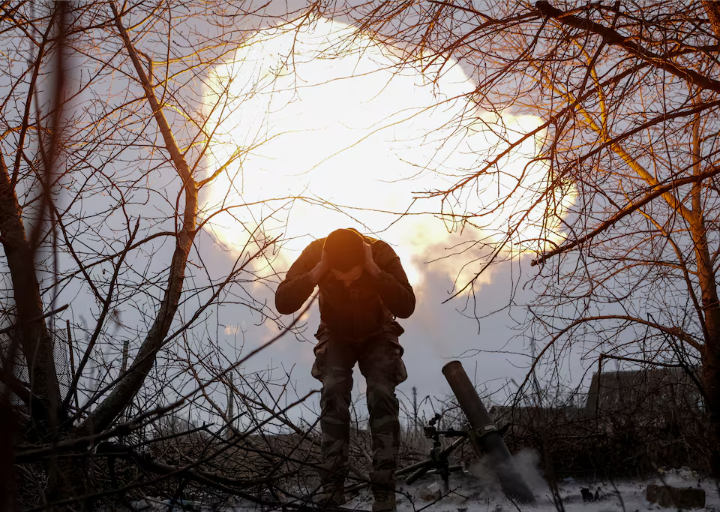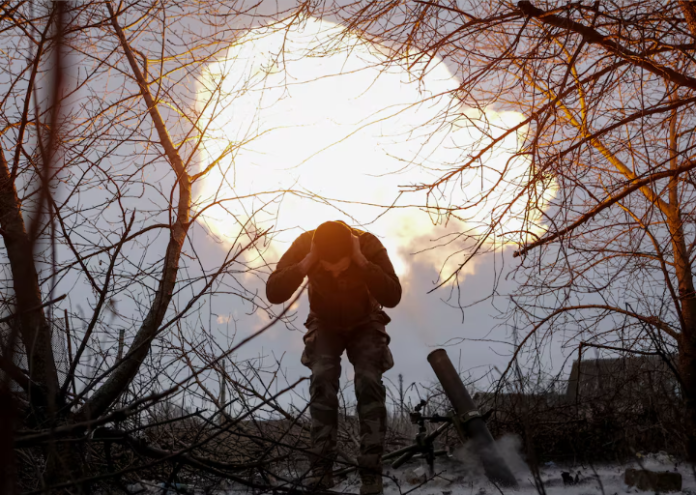In a significant policy shift, the United States has chosen not to co-sponsor a United Nations resolution commemorating the third anniversary of Russia’s invasion of Ukraine. This draft resolution reaffirms Ukraine’s territorial integrity and demands the immediate withdrawal of Russian forces.
The U.S. decision reflects escalating tensions between President Donald Trump and Ukrainian President Volodymyr Zelenskiy. President Trump is actively seeking a swift conclusion to the conflict and has initiated direct negotiations with Russia, notably excluding Ukrainian representatives.
This development has raised concerns among Ukraine’s allies, as previous anniversaries of the invasion saw unified international condemnation of Russia’s actions. The current U.S. stance introduces uncertainty regarding the global community’s approach to the ongoing conflict.
Diplomatic sources indicate that over 50 countries are sponsoring the resolution, though specific nations have not been disclosed. The United Nations General Assembly is scheduled to vote on the resolution on Monday. While General Assembly resolutions are not legally binding, they carry significant political weight and symbolize the international community’s perspective on critical issues.
In parallel, the United States has objected to language in a forthcoming statement from the Group of Seven (G7) nations that condemns “Russian aggression.” This objection marks a departure from the consistent terminology used by both the UN and G7 since the onset of the invasion in February 2022. The G7 plans to convene a call on Monday to discuss the situation further.
The discord between Presidents Trump and Zelenskiy has intensified, especially following President Trump’s recent remarks blaming President Zelenskiy for initiating the war and labeling him a “dictator.” These statements have strained U.S.-Ukraine relations and have prompted European leaders to reassess their positions.
Greek Prime Minister Kyriakos Mitsotakis emphasized the need for Europe to develop its own defense policies in response to the shifting U.S. stance. He highlighted the importance of Europe addressing its geopolitical and economic complacency to reduce reliance on the United States.

Further complicating the geopolitical landscape, President Trump has advocated for Russia’s readmission into the G7, describing its previous exclusion as a mistake. He argued that Russia’s presence is essential for pragmatic discussions, given its global significance. This proposal has been met with mixed reactions, and Canada’s response, as the current G7 chair, remains pending.
The draft UN resolution calls for de-escalation, an immediate cessation of hostilities, and a peaceful resolution to the conflict in accordance with the UN Charter and international law. It reiterates the demand for Russia to withdraw all military forces from Ukrainian territory within its internationally recognized borders.
Since the invasion, Russia has occupied approximately 20% of Ukraine, steadily advancing in the eastern regions. Moscow justifies its actions as a response to perceived threats from Ukraine’s pursuit of NATO membership, while Ukraine and its Western allies view Russia’s moves as an imperialistic land grab.
As the situation evolves, the international community remains watchful, recognizing that the U.S. policy shift could have profound implications for the conflict’s trajectory and global geopolitical stability.



